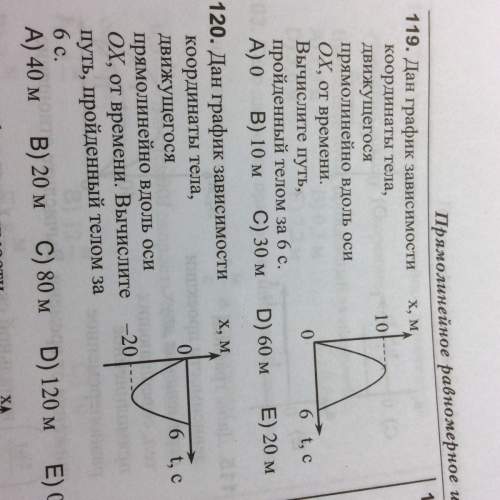

Answers: 2


Other questions on the subject: Physics

Physics, 22.06.2019 00:20, nini261
2.22/3.33 points | previous answers tamucolphysmechl1 4.pre.002. ask your teacher my notes question part points submissions used on a frictionless air track, a blue glider with mass 0.200 kg is moving to the right with a speed of 8.00 m/s. it strikes a red glider that has mass 0.600 kg and that is initially at rest. after the collision, the blue glider is moving to the left with a speed of 2.40 m/s. (a) what are the magnitude and direction of the velocity of the red glider after the collision? magnitude 3.33 m/s correct: your answer is correct. direction correct: your answer is correct. (b) is this collision elastic?
Answers: 1

Physics, 22.06.2019 03:50, cyberdac01
Which statement correctly describes a step-up transformer? a. it increases the amount of electric energy available. b. it increases the voltage of an electric current. c. it changes direct current into alternating current. d. it has more loops of wire in its primary coil.
Answers: 1

Physics, 22.06.2019 11:50, azertyqwerty123
Two resistors r1 and r2 may be connected either in series or parallel across an ideal battery with emf ε. we desire the rate of energy dissipation of the parallel combination to be 8.75 times that of the series combination. if r1 = 105 ω, what are the (a) smaller and (b) larger of the two values of r2 that result in that dissipation rate?
Answers: 2

Physics, 22.06.2019 14:10, kortetsosie8813
Match these items. 1. coulombs __force 2. ohms __emf 3. centimeters __resistance 4. newtons __charge 5. volts __length
Answers: 1
You know the right answer?
Suppose we replace the resistors R1, R2, and R3 with three
identical resistors, R. What is the pote...
Questions in other subjects:



Social Studies, 06.01.2020 20:31






Social Studies, 06.01.2020 20:31





